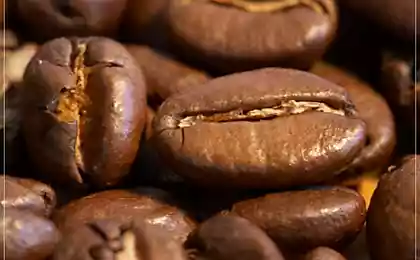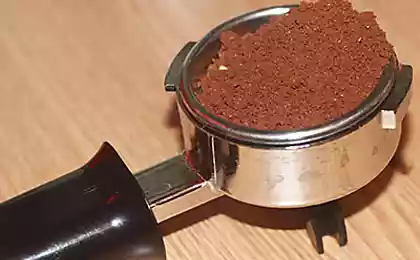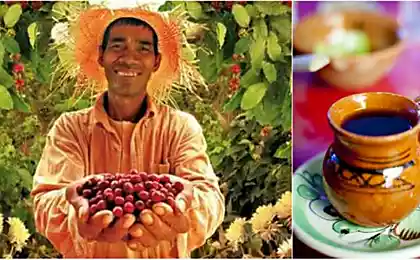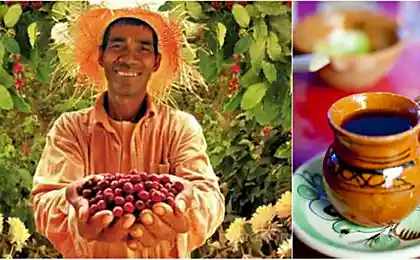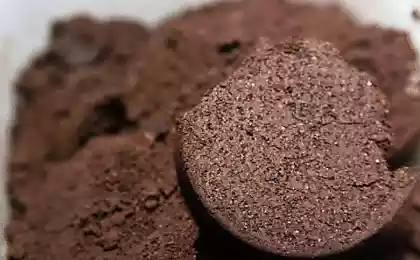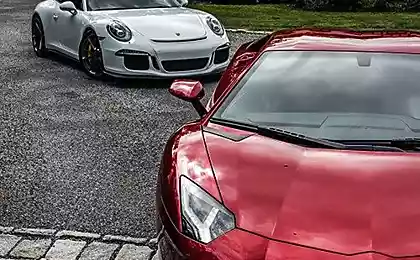532
Coffee dangerous for the environment

When we buy a Cup of coffee at your favorite coffee shop near home or work, then obviously, we assume that the resulting high-quality ingredients sourced from environmentally friendly way. Unfortunately, scientists say that it is not always the case. In accordance with a recent study of the world economy on the cultivation of coffee today bring more harm to the environment than ever.
The authors work under the guidance shaleen JHA from the University of Texas, USA, revealed that to date coffee in the world grown mainly in direct sunlight and not in shade of tree crowns.
You probably heard about the importance of the cultivation of coffee trees in the shade, but what happens when not provided with such ideal conditions? So, a sun-drenched coffee plantations are no better than a vast monoculture fields of corn or soybeans that are fighting environmental activists over the last few decades.
Large trees, under which should be grown coffee beans, important for ecology, as they provide natural habitats for local forms of wild life, promote the health of the soil and fighting erosion, not to mention the benefits such as fruits and firewood. "Our scientists say that certified farms for growing coffee is the second most important thing after the rain forest" — talks about the shadowed farms Chris Willy, head of the organization on issues of organic farming in Tropical Alliance.
"The expansion of coffee plantations, which we have seen in the past two decades, mostly in those places where coffee trees are grown in low shade, extremely intense way, where there are no more tall trees, says shaleen JHA. And with this method the production of the coffee tree does not survive long enough for that really harmful to the environment."
So if it is better, then why are we so far away from the correct methods of growing coffee on shaded plantations? Very simple – because of the expansion of the coffee industry in Brazil and Vietnam, two largest producers of coffee in the world. The researchers found that more than three quarters of the coffee plantations in these two countries do not have large trees for shade.

Unfortunately, a significant part of cheap coffee comes from the sun-drenched fields. As noted in a study in industry of these two countries is dominated by the cultivation of inexpensive bitter taste of Robusta coffee from which the beverage is instant and enormous amounts of ground coffee in cans that you can buy in the supermarket.
Many popular institutions, as a rule, buying coffee beans Arabica, which is different from the Robusta. But while the Arabica coffee is often grown in the shade, shaleen JHA says that this variety is produced under the open sun or in the partially covered the fields of environmental benefits which are much more modest than those offered by a fully-shaded farms.
The authors claim that in the period between 1996 and 2010 the proportion of global coffee farms using traditional cultivation methods in the shadows, fell from 43 to 24 percent, while the popularity of coffee in the world has increased.
Since coffee trees have evolved in the undergrowth of the jungle of East Africa, initially within hundreds of years people grew only in the shade. But in the 1970-ies was made the transition to the fields under the open sun in the hope to enhance photosynthesis, prevent disease and to allow more dense planting of trees. Farmers began to cut the crown, giving shade, and the lack of birds and bats, destroying insects, compensated for higher amounts of pesticides.
This strategy has helped farmers to produce much more coffee, especially in Brazil, where the coffee trees are grown under the sun with the help of automated technologies. Some experts, including shaleen JHA, believe that the taste of the coffee beans grown in direct sunlight, worse than those that developed in the shade. But Dan Cox, President and owner of Coffee Analyst, working in a coffee tasting, do not agree with this. "The difference in taste, if at all, is extremely small,' he says. – I don't think the point of opacity, rather it is a question of biological diversity".
At this stage are in the dispute JHA and her colleagues. They believe that the lack of trees destroys vital habitat for local wildlife such as tropical birds and monkeys, and the land becomes more vulnerable to the effects of erosion and climate change. Additional problems creates the use of chemicals.
Here is what one of the authors of the work of Robert rice: "For decades, doing highly productive agriculture, we learned that, departing from traditional practices, we lose a huge area of vegetable soil, pollute waterways and become much more vulnerable to weather changes."
So, according to the researchers, the only way to ensure that coffee is good for the planet and biodiversity is to buy beans certified by the rainforest Alliance. Then you are guaranteed to receive a product grown in the shade.
Source: facepla.net
Siberian scientists have created antibiotic for animals from yeast
9 places on the human body that you should protect from the sun


